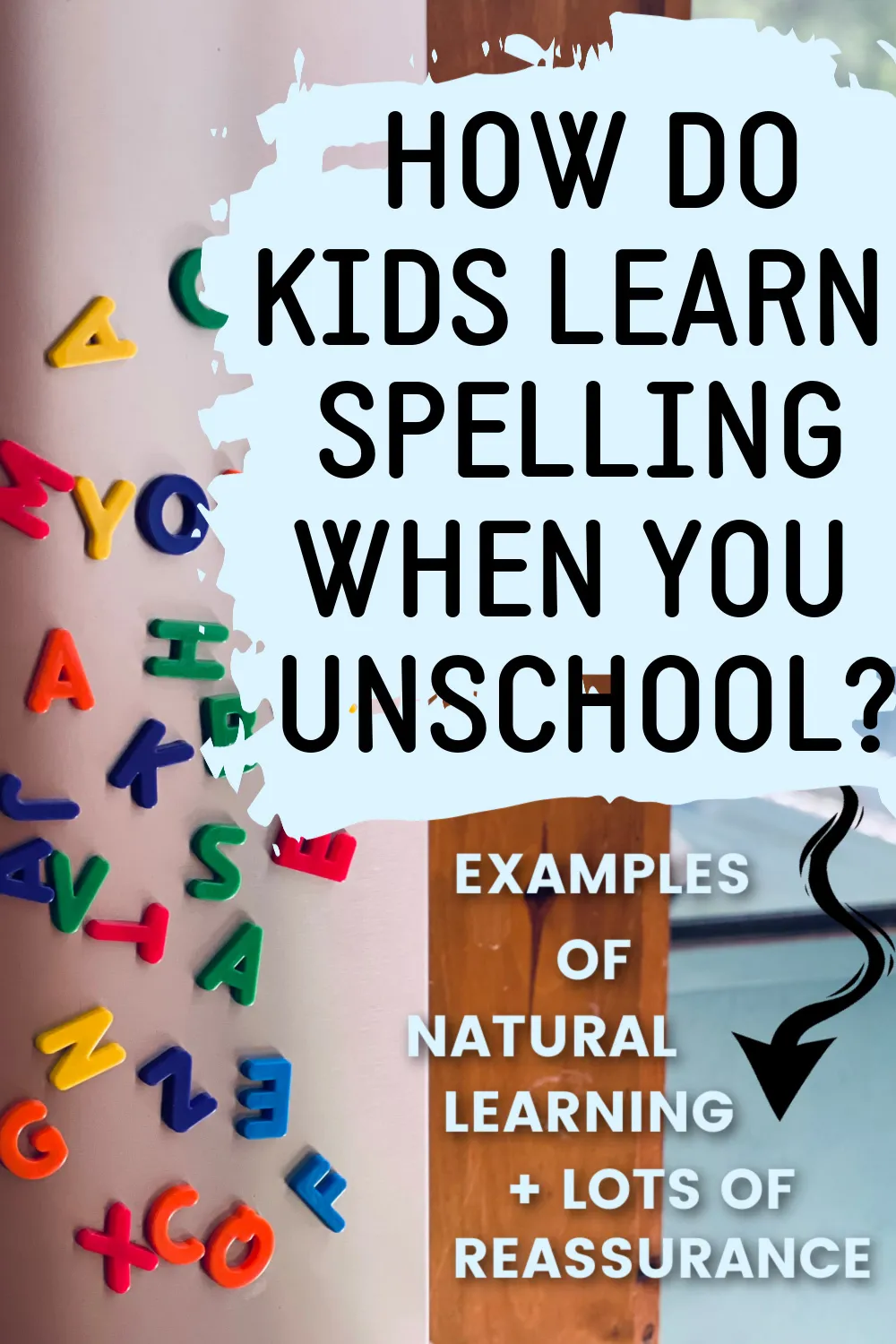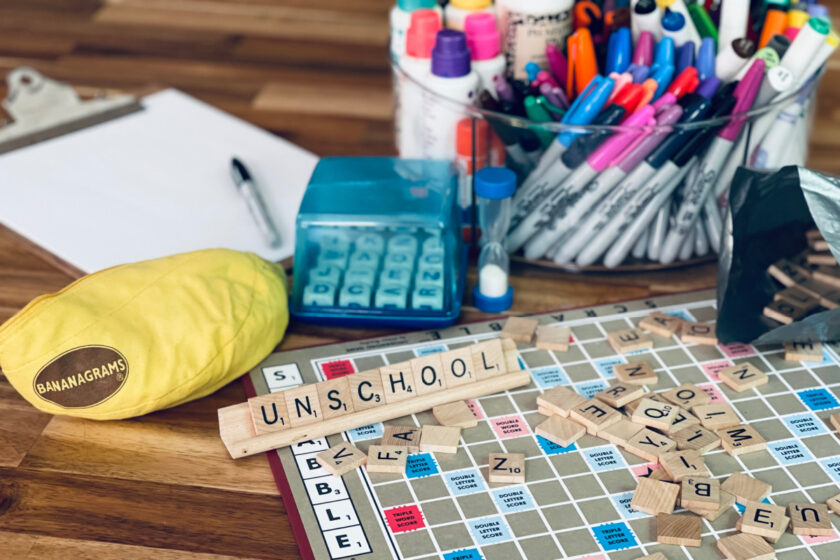Inside: Wondering what unschooling spelling looks like? Learn how kids learn how to spell naturally, through everyday life and individual interests. Also get ideas for various resources for helping an unschooler improve their spelling, if that’s their goal.
My 6-year-old sat in the bathtub, alphabet letters floating around him.
He said, “Mom, turn around for a minute. I want to make something to show you, but it’s a surprise.”
Curious, I obliged him and turned my back. He quickly called me back.
When I looked, I saw colorful letters lined up on the ledge, spelling two distinct words, which he proceeded to read out loud to me: “BE. YOU.”
To say I was shocked was an understatement. Up until now, I didn’t know he could spell, and he was only reading a few words at the time.
“Buddy, I didn’t know you knew how to spell and read those words. Where did you learn that?!”
He grinned, “Youtube. One of my favorite Youtubers says, ‘Be you. Be yourself,’ all the time.”
Apparently this favorite Youtuber frequently puts those exact words on the screen at the end of her videos.
He was learning to read and learning to spell simultaneously.
Just from following his interests. Just from living life.
You Might Also Like: Unschooling Ideas for 2023-2024 (8th, 6th, 4th, 1st and Pre-K)
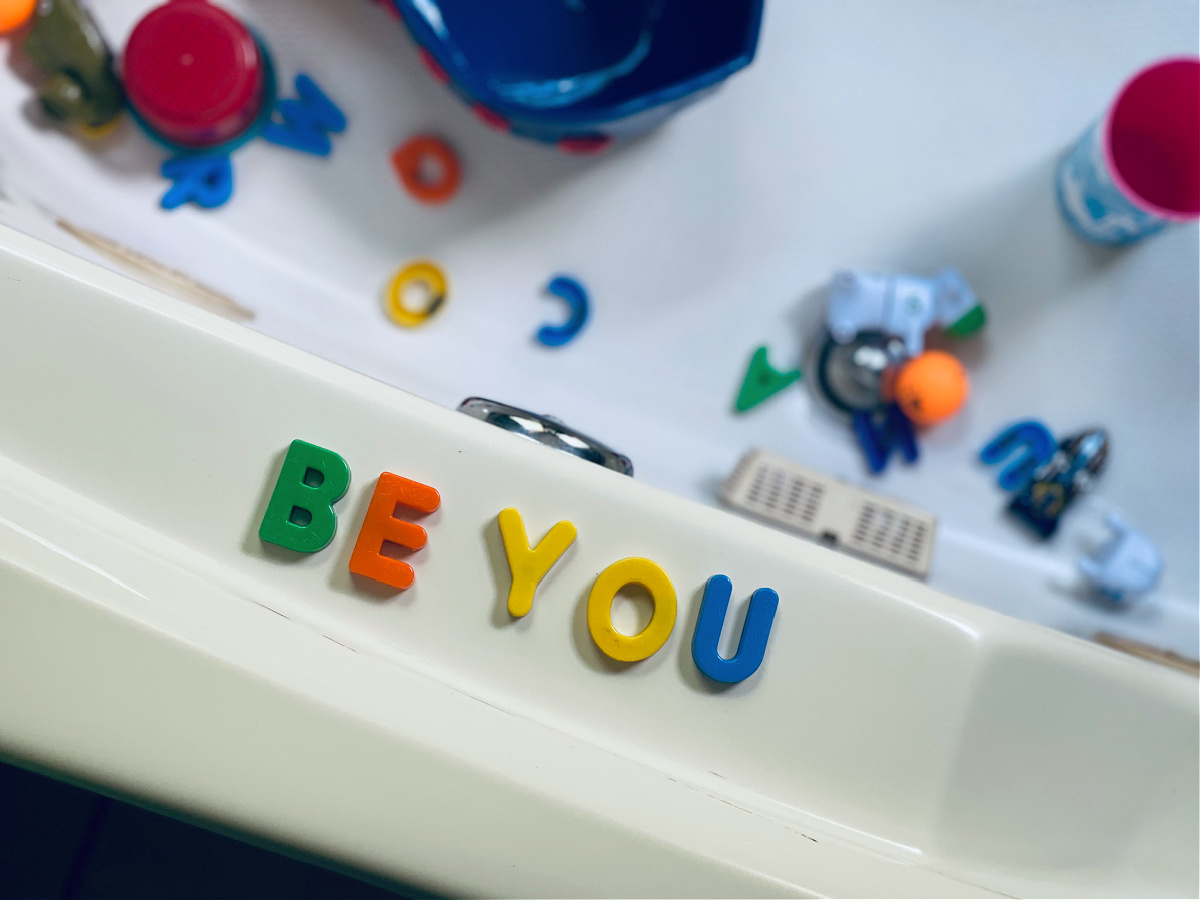
3 Primary Ways Unschoolers Learn How to Spell
This post probably contains affiliate links, which means I may earn a commission if you make a purchase through those links. As an Amazon Associate, I earn from qualifying purchases. You can find our full disclosure HERE.
We’ve been relaxed homeschooling and unschoolish from the beginning (well, week 2 if you count the first week where we attempted to use curriculum), and we’ve been fully unschooling for a year and a half.
Never ever did I assign spelling lists or do weekly spelling tests, and my oldest is going into eighth grade next year.
Thankfully, early on in my homeschool journey, I heard Sarah MacKenzie from Read Aloud Revival say something about spelling that stuck with me.
She doesn’t unschool, but she does have six kids. So simplifying is a must, and one of the ways she simplified her homeschool at the time was not to stress about spelling until middle school.
She said, “Kids are either natural spellers or they’re not, and it becomes pretty clear by sixth grade which one they are.”
Once she recognizes that a child is not a natural speller, she sends them through a couple different spelling curriculums in order to improve.
Can I just say that she was spot on about the grade levels at least? By sixth grade, it was very apparent that my oldest was a natural speller.
My 11-year-old is hitting sixth grade next year, and he doesn’t seem to be a natural speller. Perhaps it’s because he wasn’t drawn to writing as much as his older sister until recently.
He can spell what schools consider to be grade 1 and 2 words correctly for the most part. Beyond that, he struggles, depending on how frequently he uses the word in everyday life.
So how does unschooling spelling work, anyway? How do some kids pick up spelling naturally, just through living life?
You Might Also Like: How to Track Learning When You Unschool – 5 Valid Options
1. Writing
My oldest – now 13-years-old – was always a natural list maker. She loved making lists for all.the.things. A little bit like her mother…
- Candy lists.
- To-do lists.
- Packing lists.
- Knoebels rides lists.
You name a kind of list: she made it.
She wrote letters to family and friends. She wrote letters to siblings for especially important messages (e.g. never steal my candy again because it’s not cool), and she still does occasionally.
She also loved writing short stories for several years. She never got past chapters six or seven, but she reworked those over and over again.
My 11-year-old is writing more now that he is working on video editing in Minecraft. He adds subtitles to his videos, and he dialogues with friends via writing in Discord chat.
My 9-year-old wanted to write down lists of rhyming words this year, and later, the biggest empires throughout history.
My 7-year-old enjoys writing a new chapter of his story at the library once a week. Because he’s not reading fluently yet, I either type for him or dictate the spelling while he types.
My 4-year-old loves typing on my phone. She asks how to spell something, and I dictate it to her.
Every child has their own reasons for wanting to write, but they all have found reasons over the years to pursue writing, which always involves spelling.
2. Games of All Kinds
Games have always been a natural part of our homeschool and our life.
I discovered Cait from My Little Poppies when I was a baby homeschooler, and I loved the idea of learning through play!
So I stocked up on various educational board games (now I know that all games are educational) and we played them several times a week.
My oldest in particular loves language arts games of all kinds.
Boggle, Scrabble, crosswords. Apps like Word Cross Puzzle and New York Times’ Spelling Bee.
My other kids enjoy video games far more, and that’s o.k. There is so much value in video games, and kids are using their brains so much when they play them!
You Might Also Like: 30+ Science Board Games for Kids (Organized by Age Level)
3. Reading
Of all my kids, my oldest is the one who read the most physical books so far. That’s before her dad introduced her to the great wide world of audiobooks.
But even after audiobooks, she still read things like instruction manuals and picture books to younger siblings and signs and all kinds of things on the internet.
I still read physical books to my younger two kids (picture books and THIS graphic novel series), with my 7-year-old asking me to put my finger under the words all the time.
Kids who aren’t into physical books still read all the time, things like….
- Signs
- Subtitles
- Magnetic Poetry
- Recipes
- Notes
- Comments
- Video Games
Video games actually tend to require a lot of reading to make progress in the game. To interact with others online, you need reading and writing, both of which involve spelling.
Related: Learning to Read is a Natural Process…If You Can Be Patient
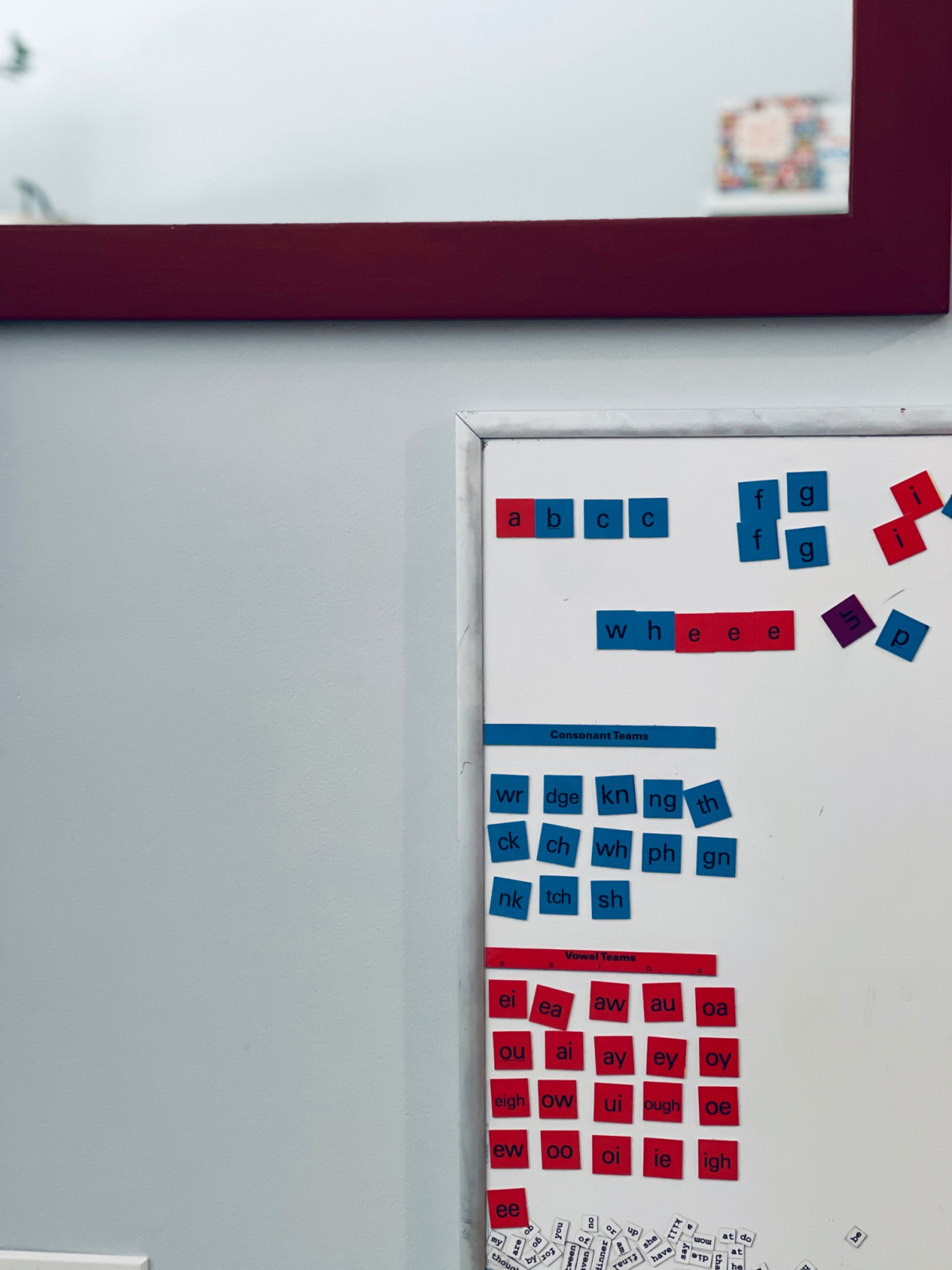
Should You Spell Words When Your Child Asks, Or Make Them Sound It Out?
This comes up so frequently, I thought I’d address it head on.
If your child asks you how to spell a word, just spell it for them. Pretty please?
Have you seen our language?! Words break spelling rules all.the.time.
Some of the letters you can hear; some of them you can’t. It’s a mess.
Instead of making them laboriously sound out and attempt to spell the word (don’t you think they probably did that?, they will learn far more by you telling them how to spell it, and writing/typing out the word.
Plus, you, an adult, “ask” tools how to spell all the time: spellcheck, google, etc.
And if you asked another adult how to spell a word, how would you feel being forced to “sound it out”? Probably crappy, annoyed, ashamed that you asked in the first place.
You wouldn’t be motivated to ask again, that’s for sure.
Do to your child what you would want done to you.
Related: What Is Respectful Parenting? A Sadly Radical Philosophy
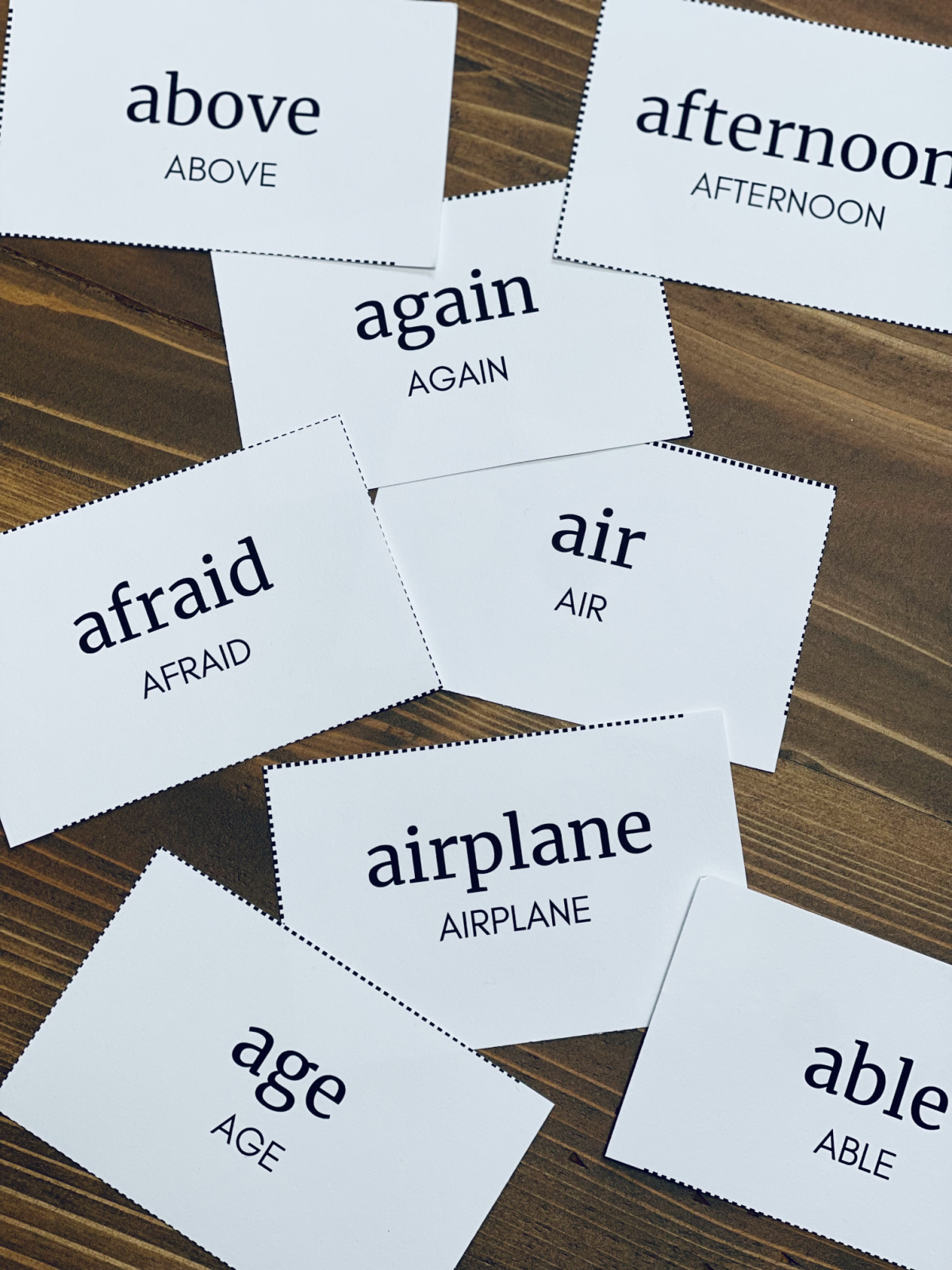
What If My Unschooled Kid Asks to Work On Spelling?
Earlier this year, my 11-year-old was playing Minecraft and chatting with people on Discord. He was asking them how to spell words, or just not spelling them correctly.
Sadly, they joked about him being homeschooled and that’s why he can’t spell very well. When he told them to knock it off, they did, but the experience prompted him to ask me how he could improve his spelling.
I started brainstorming and hunting for spelling resources. My first stop happened to be a curriculum Sarah MacKenzie mentioned using with her kids.
I haven’t bought a curriculum in years. I didn’t like curriculum years ago, so I’m not sure why I thought it would be any different today.
But hey, maybe I was missing out on a curriculum others were raving about. I decided to give it a try.
(It reminded me again that yeah, I still don’t like curriculum.)
Plan A: Spelling Curriculum
First, we tried All About Spelling (I’d heard good things about Phonetic Zoo, as well). It was my first curriculum purchase in years.
And I really wanted it to work. I did.
But the minute I broke it out, I got all the same vibes I got years ago when I tried to use Saxon Math. The scripted teacher guide was just, so, so…curriculumy. So schooly.
Maybe that works for some people. It definitely didn’t work for us.
We dragged our feet through the first few lessons, until I decided to abandon it.
(I do like the letter tiles though. Not that we use them much at the moment, but maybe with another kid one day?)
I guess I’m just not convinced that memorizing a bunch of spelling rules and phonemes is the most efficient way to learn spelling.
It seems like a huge waste of time to me. It seemed like a huge waste of time to my 11-year-old, too.
Plan B: Try more spelling games and apps.
I offered this one. It was swiftly rejected.
Those games just don’t interest him, and his motivation to just “getting the job done” so to speak – learning how to spell ASAP – is high.
Which brings us to plan C…
Plan C: Memorize spelling words one by one.
That’s where we’re at now, and it seems to be working for this particular kid.
He seems to have a photographic memory. Once he learns how to spell a word, it sticks.
I found a list of the most commonly used words in English, by grade level, of course (because: school-centric society).
Before this, I purchased a book with spelling lists. But the sheer volume of words was overwhelming to me, and I preferred the idea of only focusing on the most commonly used words, instead.
After ruling out grade 2 words, most of which he seemed to know, I made flashcards out of Grade 3 words, and we work on 1-2 a day most days.
Grade 3 happens to have the bulk of the words. But we’ll probably make our way through Grade 4 and 5 words as well, until he loses interest and feels confident in his spelling abilities.
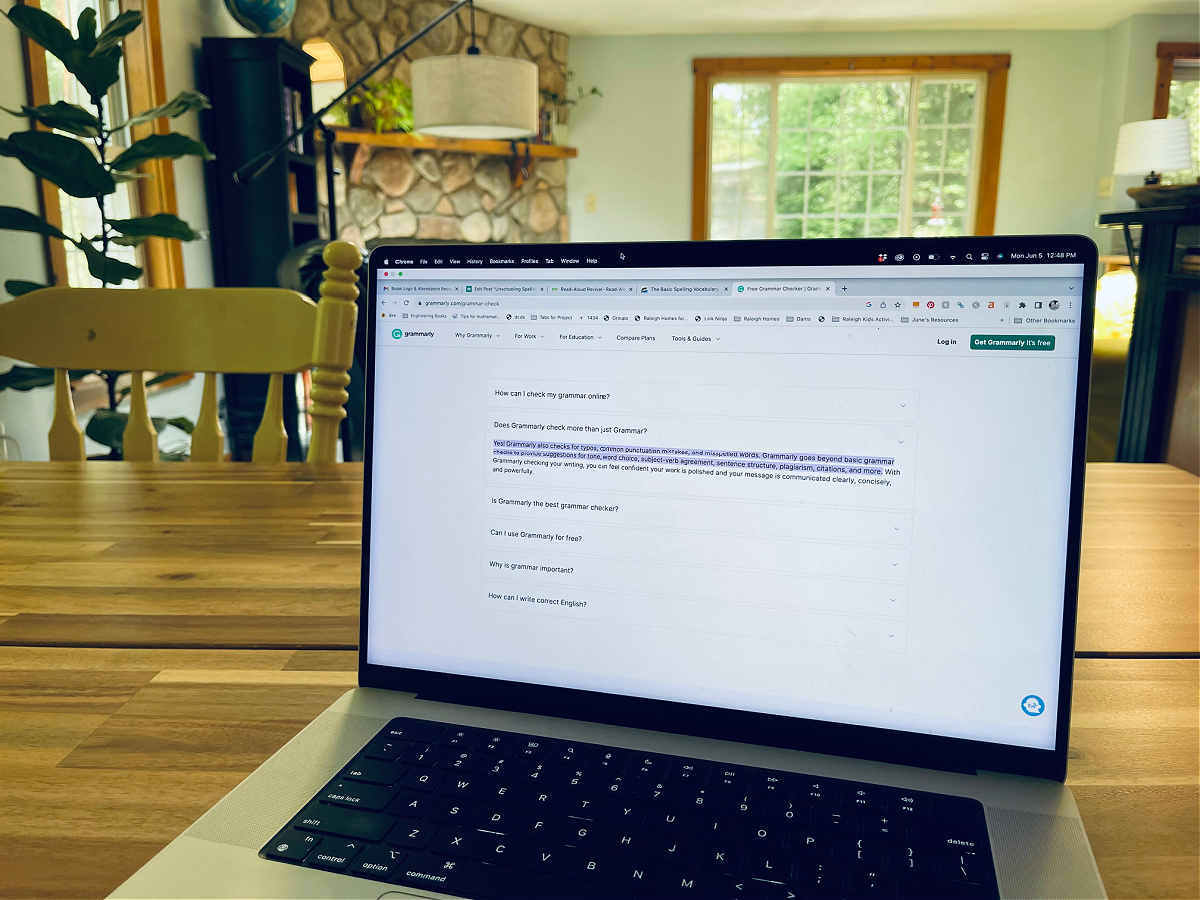
Your Kids Don’t Need to Be Spelling Geniuses to Be Successful in Life
When my 11-year-old was teased for not being great at spelling, I reached out to my email list (which, if you’re not on it, you totally should be).
I told them I was on a quest to find resources to help him work on his spelling.
You know the responses I got? So SO many adults telling me things like, “I’m not a good speller, and I do XYZ job where you’d think being a good speller is required, but it’s not.”
These adults were writers. They were editors – yes, editors!
And when I shared this story on social media? Same thing.
One unschooled mom friend said her dad is a doctor, and he can’t spell very well. Yep: a doctor.
There are these magical tools these days called spellcheck.
And when spell check fails (because spell check doesn’t know which word you meant to use), there are tools like Grammarly that check for words spelled correctly, but used in the wrong context.
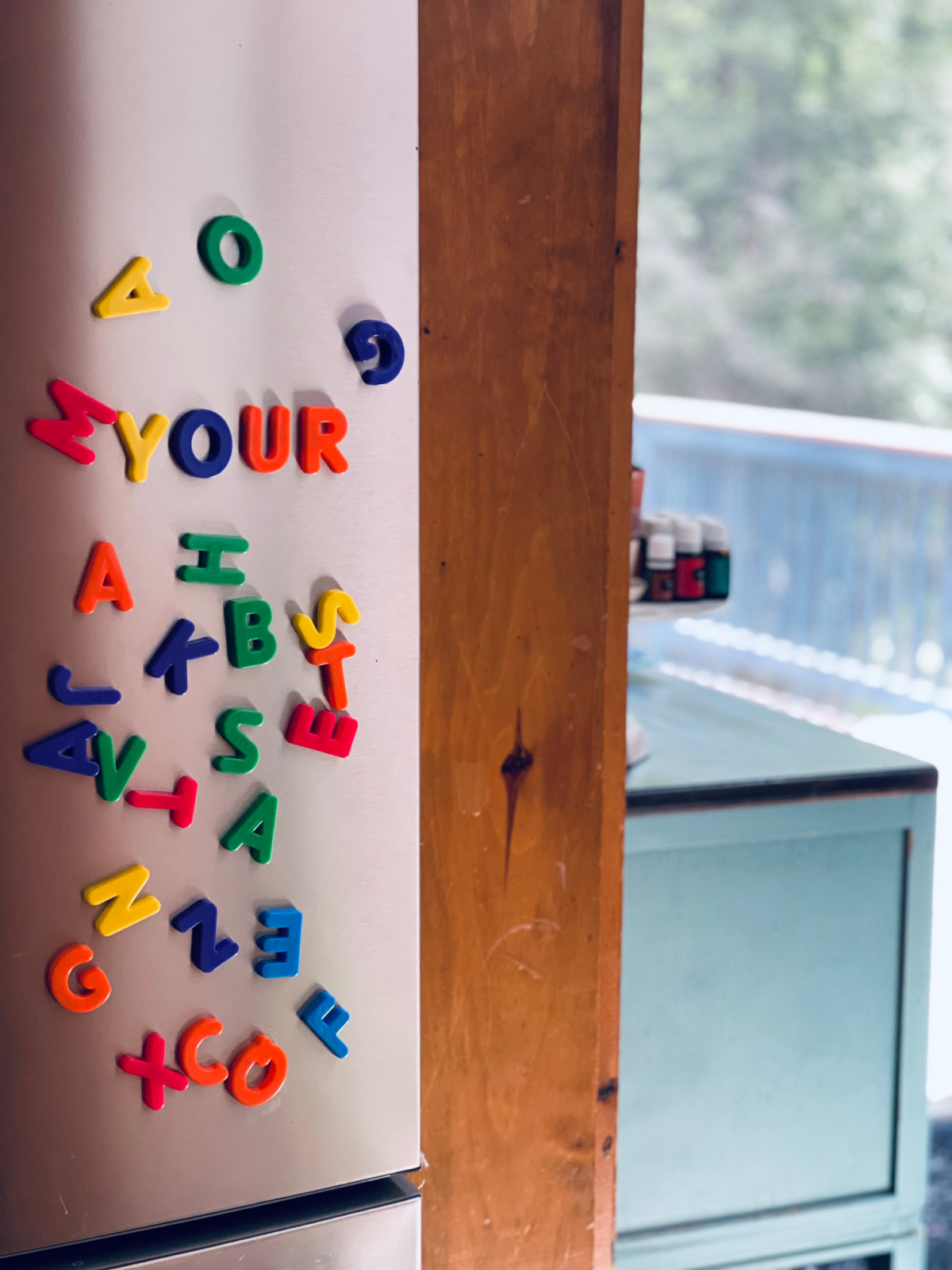
The Beauty of Unschooling Spelling – And Just About Any Subject
Sending your kids to school to sit through a regimented, linear, rule-based spelling program isn’t a guarantee.
I am pretty good at spelling, but there are words I still look up every time I use them. Words like “avocado” and “rhythm”, although I’m getting better at the former because I’ve started buying them more regularly.
For whatever reason, some words just don’t stick in my brain. Probably because 1) they’re tricky words and 2) I don’t use them very often.
And as you can see from the stories above, so many adults endured years of traditional school, and they STILL can’t spell worth a darn.
They might retain the information well enough to regurgitate it on Friday’s spelling test. But after that? It’s anyone’s guess how much they will actually retain.
Why? Because they aren’t interested. They don’t care.
They don’t have a good reason TO THEM to learn and retain that information.
When your child has their own reasons to learn a skill? They figure out the best way for them to learn that skill – with the help of their parent, of course. Then they work hard, and they learn it.
And my hunch is that even if your child is not a natural speller, they will become a far better speller when they are allowed to learn spelling in their own time, for their own reasons.
So if your child is not a spelling whiz by 9 or 10, or even 11, don’t sweat it. They’ll eventually find their own really good reason to improve, and you’ll be there to support them if they need you.
Every unschooled child’s path to learning spelling will be different, and they’ll all achieve different levels of spelling proficiency (just like adults who are traditionally schooled).
Trust the process: unschooling spelling works.
Read Next: What Is Unschooling? Defining a Misunderstood Homeschool Style
